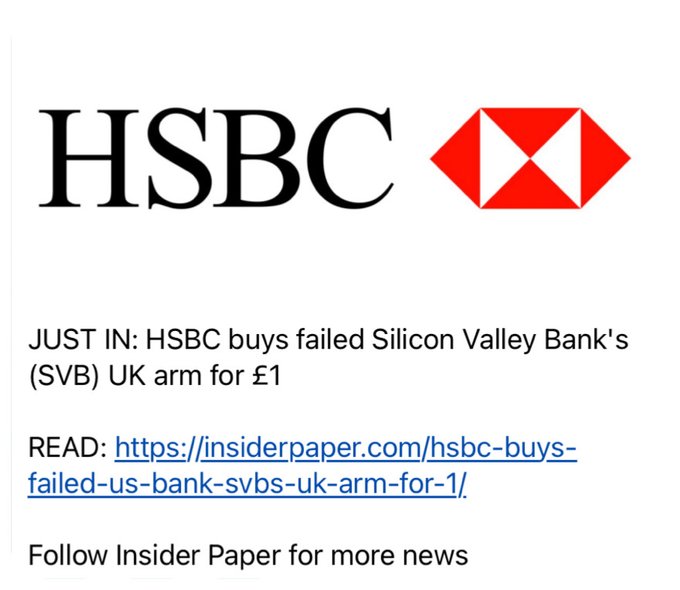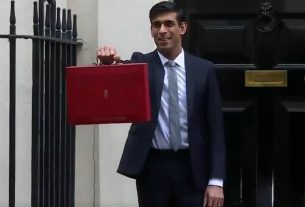Although HSBC stepped in to rescue the UK branch, the fallout from the Silicon Valley Bank collapse will likely ripple on. In an open letter to banking regulators and Rishi Sunak, technology founders and investors with a combined capital of more than £560bn expressed gratitude and relief. Nearly 900 tech industry representatives signed the letter after HSBC Holdings purchased the UK arm of SVB for £1.
Saving SVB UK, they said, would “preserve the momentum and energy of the UK tech sector and its wider significance to the whole of the UK, keeping UK tech innovators at the forefront of job creation, economic growth and finding solutions to the world’s biggest problems”.
“The UK can now continue to be seen globally as a centre for the best entrepreneurs, backed by a tech-friendly government, who understand, businesses need for stability.”
The Bank of England was set to initiate an insolvency process for the UK branch following the Silicon Valley Bank collapse in the US. Frantic negotiations ensued, with the government holding talks with potential buyers, including the Bank of London, JP Morgan Chase, and Oaknorth Bank.
The deal with HSBC means depositors’ cash is safe while the UK arm will operate as a subsidiary of HSBC’s UK arm. Commenting on the deal, Chancellor Jeremy Hunt said on Monday:
“A number of our most promising and important technology and life science companies had their money with Silicon Valley Bank in the UK branch.
“When you have very young companies, very promising companies, they’re also fragile. They need to pay their staff. And they were worried that as of 8:00 this morning, they might literally not be able to access their bank accounts.
“Some of them only had bank accounts with Silicon Valley Bank UK. And so, for that reason, we were faced with a situation where we could have seen some of our most important companies, our most strategic companies, wiped out, and that would have been extremely dangerous.”
The UK tech sector breathed a sigh of relief after the UK government signalled stalwart support for the industry and confidence in the British economy and financial system.
After the deal became public, HSBC group chief executive Noel Quinn told reporters:
“It (the deal) strengthens our commercial banking franchise and enhances our ability to serve innovative and fast-growing firms, including in the technology and life-science sectors, in the UK and internationally.”
The government stressed that the sale did not involve any money from UK taxpayers.
The fallout from the Silicon Valley Bank collapse continues
Following the SVB collapse and rescue of the UK subsidiary, one may feel a sense of relief. However, the spillover into the markets means its impact may affect everyone. UK interest rates, for instance, were set to remain at around 4.75% or a little more. But the collapse led to market turmoil, leaving UK peak rates at 4.25%, with a similar drop manifesting in the US.
Over the last year and a half, interest rate hikes induced a sharp drop in bond values, part of the reason SVB collapsed in the first place, which then led to a run on the bank. In the foreseeable future, the Bank of England may be reluctant to impose further hikes as a result.
It is hard to predict how this story will pan out. If the Bank of England does indeed set peak rates at a lower level than anticipated, one might suspect that doing so will fuel inflation. Yet it is its job to keep inflation low, meaning the Bank of England is facing a tough balancing act over the coming months.




